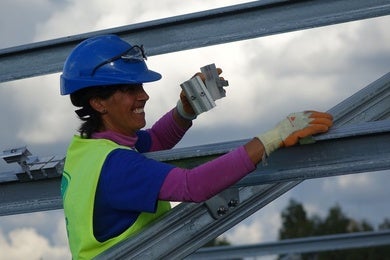Blogs Navigation
Sustainable BusinessRecent posts

How to Measure Job Creation in Development Projects
Development finance institutions need to know how many jobs their investments support and create, yet obtaining reliable data is a challenge. To address this, IDB Invest is piloting a new framework to measure the contribution of development project portfolios to employment in Latin America and the Caribbean.

In the Face of Sustainability Challenges, Strong Governance Begins in the Boardroom
Boards of Directors must lead mitigation strategies, embedding long-term planning and innovation into risk oversight. IDB Invest empowers directors to transform climate governance into resilience, opportunity, and competitive advantage across diverse sectors.

36,000 Transactions That Transformed Regional Trade
Since 2005, the Trade Finance Facilitation Program has promoted financial inclusion, trade resilience, and regional integration among countries through financial solutions, strengthening local capacities, and promoting sustainability.

Three reasons why sustainability supports SME growth
Doing business these days is about more than just profitability. It’s also about sustainability, even for small and medium-sized enterprises (SMEs). Despite this, lots of SMEs are standing on the sidelines, hesitant to make investments in sustainability that don't guarantee an immediate return. So let's look at these three reasons to invest in SME sustainability initiatives:

Three surprising habits of highly productive women in the private sector
In Argentina, 61 percent of mothers work outside the home. In Chile, the US and Mexico, those numbers are 59 percent, 57 percent and 42 percent, respectively. Globally, that percentage is growing. As I prepare to join these women after the birth of my second child, I know I must find ways to be more productive and disciplined in my corporate environment. To tackle this, I spent my last weeks of maternity leave seeking the advice of the most highly productive women in the private sector I know. Their surprising answers on work-life balance, professional success and doing more with less offer tools for women, men and companies more broadly.

How new technology can make business sustainable
Did you know that when Alexander Graham Bell invented the telephone, his initial idea was to develop a device for people to hear live orchestra? The world undoubtedly changed when it was introduced. But it was actually the consumers who turned it into a different innovation, preferring to call friends and family than listen to music. This is just one example how innovation and science are transforming society.

No Women in Renewable Energy? Look Again.
Three years ago when the Canadian Climate Fund (C2F) first launched, private sector clients would balk when we asked them about the gender impact of their proposed renewable energy projects. The renewable energy sector is growing in the region, bringing with it new job opportunities, skills requirements and local business development. In this part of the climate change conversation, women in renewable energy are often invisible. This was, after all, a man’s world – renewable energy projects are primarily construction and engineering. We know the numbers – women earn only 11 percent of Sciences, Technology, Engineering and Mathematics (STEM) degrees in the region.

Overcoming stereotypes could save your business
By Susan Olsen, Lead Specialist, Opportunities for the Majority, IDB Difficulty accessing financing, poor infrastructure and incapacity to scale are cited as reasons why businesses that target the (BOP) fail. Yet, an unwillingness to overcome base of the pyramid stereotypes could easily be the most important explanation as to why some BoP-focused companies aren’t successful. Shattering stereotypes before starting an inclusive business model was the basis for a provocative panel that took place during the Inter-American Development Bank’s BASE III Forum in Mexico City.

Five reasons FinTech companies are an opportunity for financial institutions and SMEs
By Greg Da Re Access to financing has been and continues to be the main obstacle facing small and medium-sized enterprises (SMEs). According to a recent survey, 90% of all banks surveyed in Latin America and the Caribbean consider SMEs strategically important for their business, yet 44% acknowledge that their portfolio lacks suitable financial products for such enterprises.


